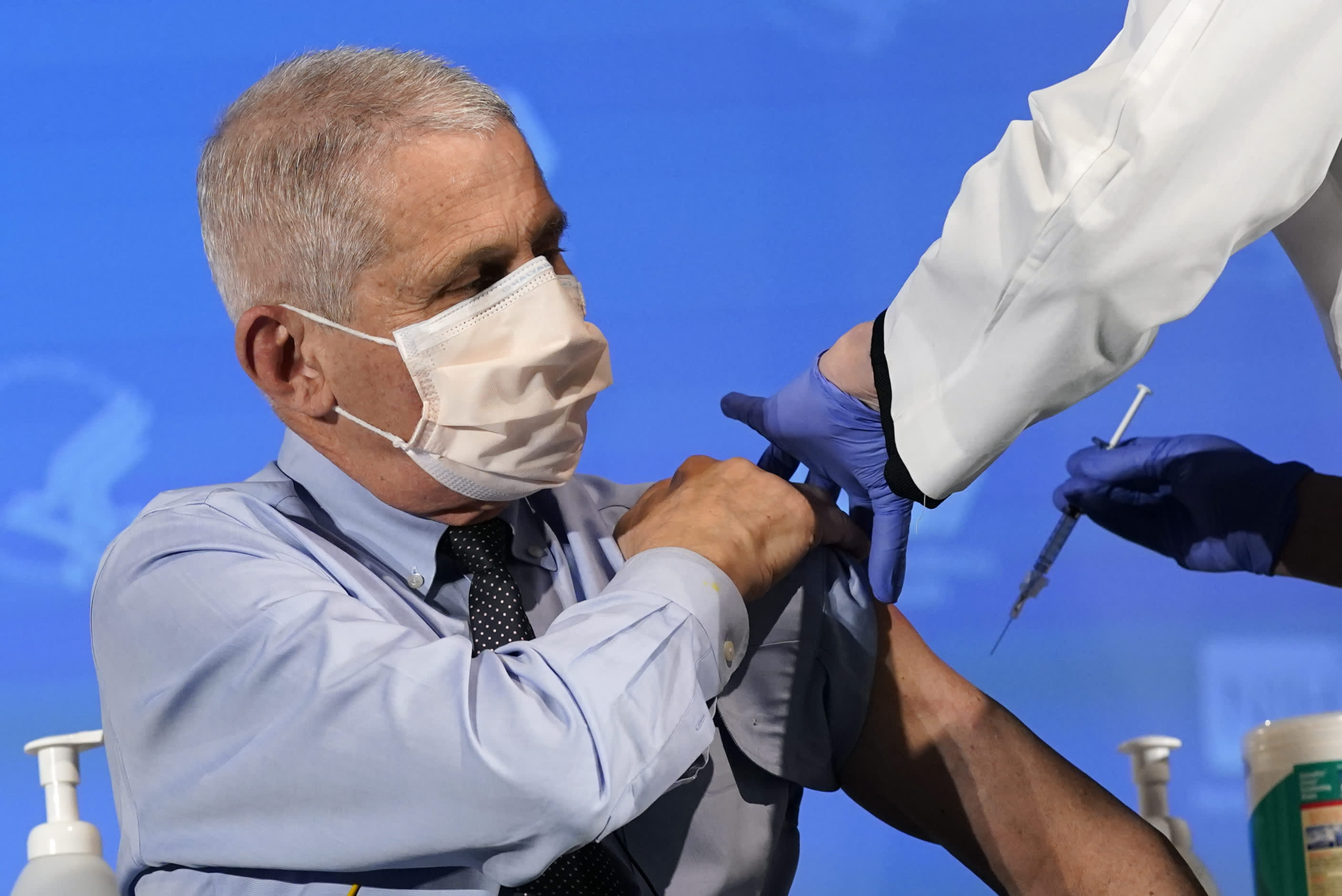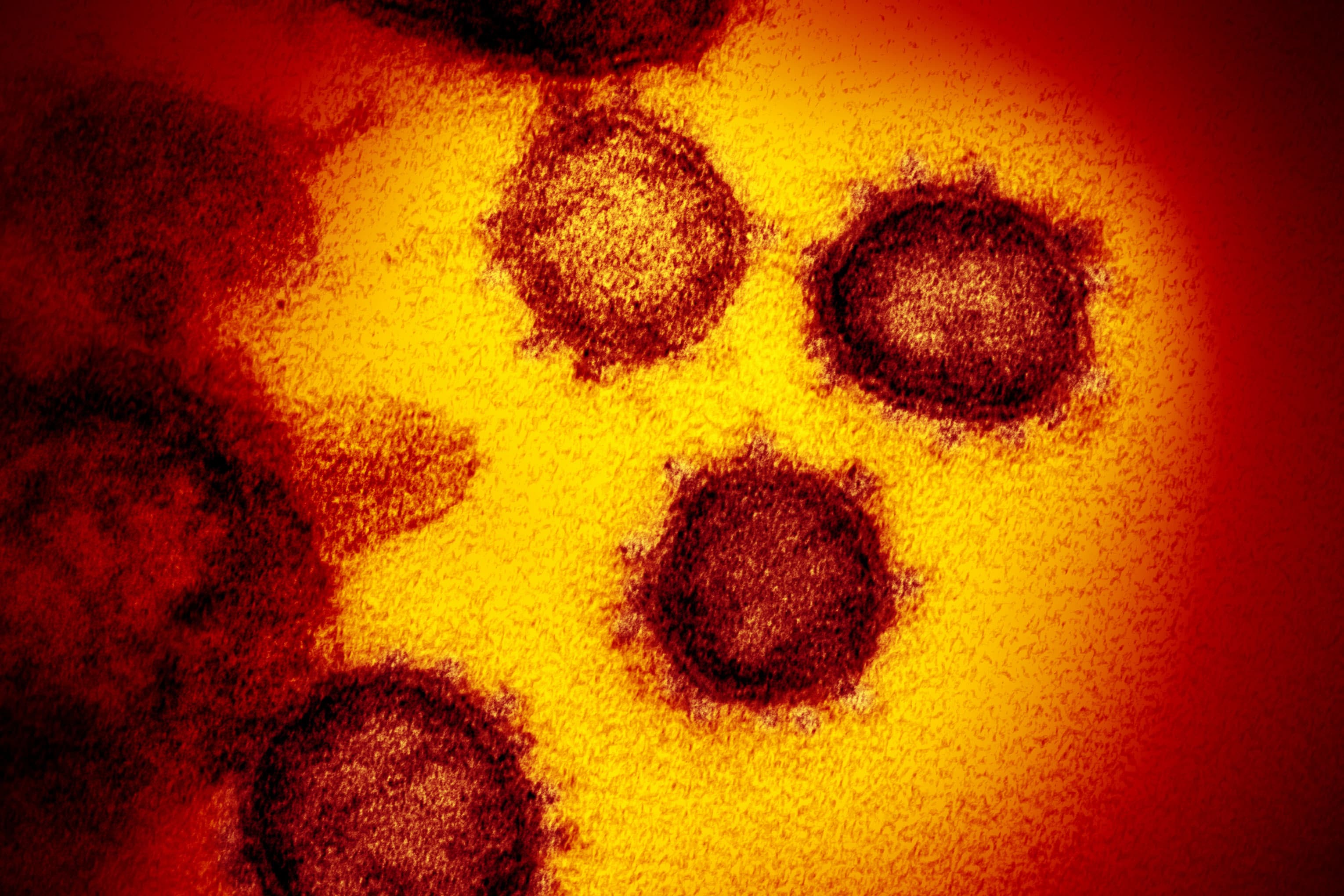The Food and Drug Administration confirmed Wednesday that Johnson & Johnson’s COVID-19 vaccine is safe and effective, setting the stage for a final decision on bringing a third shot to the U.S. marketplace.
On Friday, a panel of experts to the FDA will debate if the evidence is strong enough to recommend the long-anticipated shot. If the agency clears the J&J shot for emergency use in the U.S., it won’t boost vaccine supplies significantly right away. Only a few million doses are expected to be ready for shipping in the first week.
However, Pfizer and Moderna, the makers of the two coronavirus vaccines approved in the United States, told Congress on Tuesday that they expect a jump in shot supplies within the next month. Executives insisted they will be able to provide enough vaccine for most Americans by summer.
The U.S. has reported more than 503,000 deaths and 28 million coronavirus cases since the start of the pandemic, according to a tally by NBC News.
Get top local stories in Southern California delivered to you every morning. >Sign up for NBC LA's News Headlines newsletter.
Here are the latest coronavirus updates from the U.S. and elsewhere:
Biden Administration to Distribute 25M Cloth Masks in Underserved Communities
President Joe Biden plans to distribute millions of face masks to Americans in communities hard-hit by the coronavirus, as part of his efforts to ensure “equity” in the government's response to the pandemic.
Biden, who like Donald Trump’s administration considered sending masks to all Americans, is instead adopting a more conservative approach, aiming to reach underserved communities and those bearing the brunt of the outbreak. Trump's administration shelved the plans entirely.
Biden's plan will distribute masks not through the mail, but instead through Federally Qualified Community Health Centers and the nation's food bank and food pantry systems, the White House announced Wednesday.
The Departments of Defense, Health and Human Services, and Agriculture will be involved in the distribution of more than 25 million American-made cloth masks in both adult and kid sizes. The White House estimates they will reach 12 million to 15 million people.
CVS, Walgreens to Give Shots in More States, Stores After Boost in Federal Supply
CVS and Walgreens drugstores will start doling out COVID-19 vaccinations in more states on Thursday.
The drugstore chains say they have received additional vaccine doses from the federal government after they used up their initial allotment. Both companies started giving out vaccines on Feb. 12 to eligible customers at stores in several states.
CVS Health Corp. says it will add stores in six states, including Florida, Ohio and Pennsylvania to a list of 11 that includes big markets like California, New York and Texas. The Woonsocket, Rhode Island, company received another 570,000 doses from the government.
Walgreens said late last week that it will receive an additional 480,000 doses to distribute at its stores. The company will expand into California, Oregon and Virginia, among other states.
The Deerfield, Illinois-based Walgreens Boots Alliance Inc. said it went through nearly all of its initial shipment of 180,000 doses in three days.
Both companies run thousands of stores around the country and plan to expand their vaccine distribution at drugstores into more states as supplies allow. Customers must schedule appointments before they can receive the vaccines.
Since late last year, the drugstore chains have been sending out teams to vaccinate residents of nursing homes and other long-term care locations. A third national drugstore chain, Rite Aid Corp., also started delivering doses to customers this month at stores in the Northeast and California.
Squeezed By the Pandemic, This Small Business Is Making Lemonade Out of Lemons
States Pass Their Own Virus Aid, Not Waiting on Washington
States are not willing to wait for more federal help and have been moving ahead with their own coronavirus relief packages.
Maryland and California recently approved help for small businesses, the poor, the jobless and those needing child care. New Mexico and Pennsylvania are funneling grants directly to cash-starved businesses.
The spending shows that many states have proved unexpectedly resilient during the pandemic. And it has provided fuel for critics who say they don’t need another massive infusion of cash from Congress.
The Biden administration’s $1.9 trillion relief plan would send hundreds of billions of dollars to state and local governments.
FDA Says J&J's 1-Dose Shot Prevents COVID, Paving Way for Approval
An analysis by U.S. regulators say Johnson & Johnson’s single-dose vaccine protects against COVID-19.
The report Wednesday confirmed the vaccine is about 66% effective overall at preventing moderate to severe COVID-19.
On Friday, a panel of experts to the Food and Drug Administration will debate if the evidence is strong enough to recommend the vaccine. The FDA is expected to make a final decision within days.
If the FDA clears the J&J shot for U.S. use, it won’t boost vaccine supplies significantly right away. Only a few million doses are expected to be ready for shipping in the first week.
J&J tested its single-dose option in 44,000 people in the U.S., Latin America and South Africa. J&J previously announced the vaccine worked better in the U.S. -- 72% effective against moderate to severe COVID-19, compared with 66% in Latin America and 57% in South Africa.
Still, in every country it was highly effective against the most serious symptoms, and early study results showed no hospitalizations or deaths starting 28 days after vaccination.
As Spring Break Approaches, Public Health Experts Urge Caution
The pandemic outlook in the U.S. continues to improve, with confirmed COVID-19 cases falling for the sixth consecutive week and deaths having declined for the past three weeks. But spring break is on the horizon, bringing with it a potential uptick in travel, which has public health experts concerned about the consequences if people don't remain vigilant, NBC News reports.
Anxiety over spring break travel is rising after a particularly grim few months when case numbers, hospitalizations and deaths spiked dramatically after the end-of-year holiday season. And with several strains of the coronavirus circulating in the country — including some variants that are thought to be more transmissible — some experts worry that spring break getaways could threaten recent progress.
"Any event that involves increased travel and people relaxing preventative measures is a concern," said Amber D'Souza, a professor of epidemiology at the Johns Hopkins Bloomberg School of Public Health.
D'Souza said patterns that have emerged over the past year demonstrate how much the trajectory of the pandemic is driven by behavioral changes. For example, as places experience severe outbreaks, people typically respond by staying home, practicing social distancing and wearing masks. But as the situation improves and restrictions are rolled back, many tend to become more lax, which can cause new outbreaks to surge.
"This is exactly what we saw after Thanksgiving and after Christmas," she said. "It's an ongoing cycle and an ongoing concern."
Read the full story on NBCNews.com



